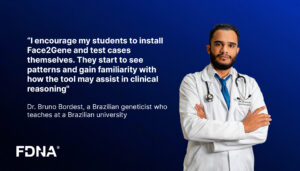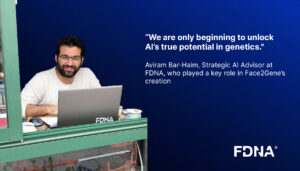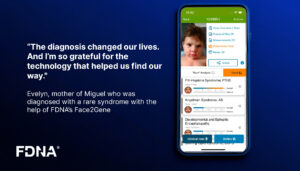March 13, 2018
PATIENT WORTHY
“A Boston biotech company called FNDA has collaborated with research organizations to utilize artificial intelligence, AI, to aid drug development and disease diagnosis, reports FierceBiotech. They are currently looking for partners to join the Genome Collaborative, a group of organizations working towards the same mission. They hope with the technology they will be able to help millions of patients globally who are undiagnosed.”
The article highlights how FDNA, a Boston-based company, leverages advanced AI technologies to expedite the diagnosis of rare genetic disorders. By utilizing its cutting-edge Face2Gene platform, FDNA analyzes facial features and phenotypic data to quickly and accurately identify genetic conditions. This AI-driven approach significantly reduces diagnosis times, providing quicker access to appropriate treatments for patients. FDNA’s innovative use of AI technologies exemplifies the potential for artificial intelligence to transform medical diagnostics and improve patient outcomes in the field of rare diseases.


